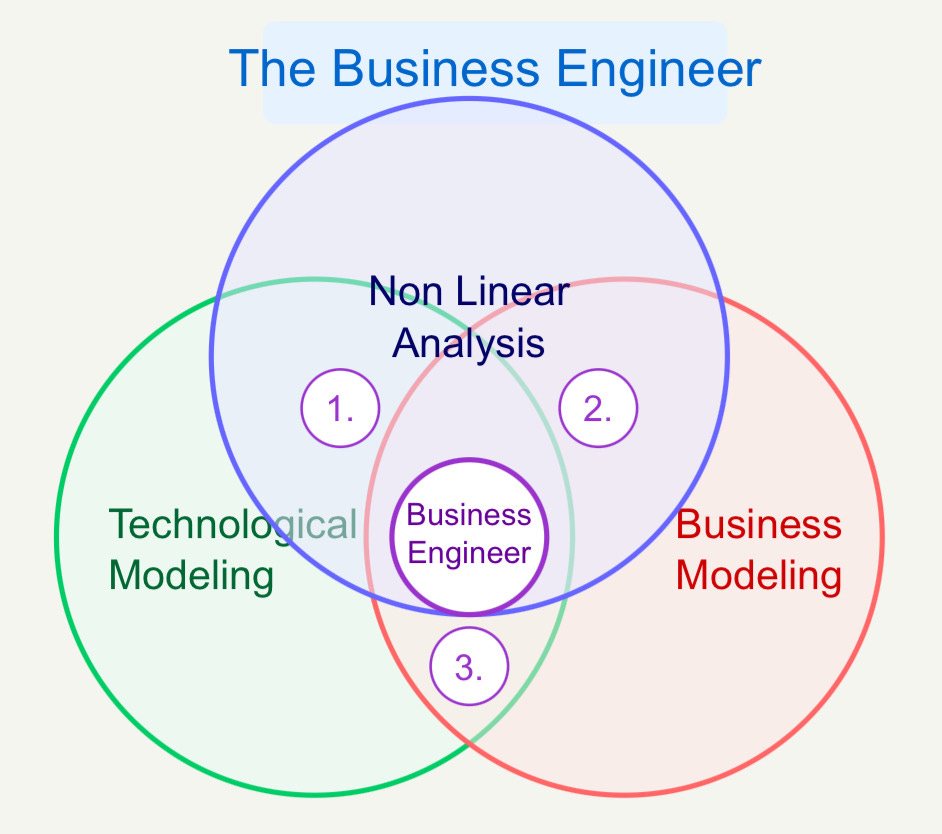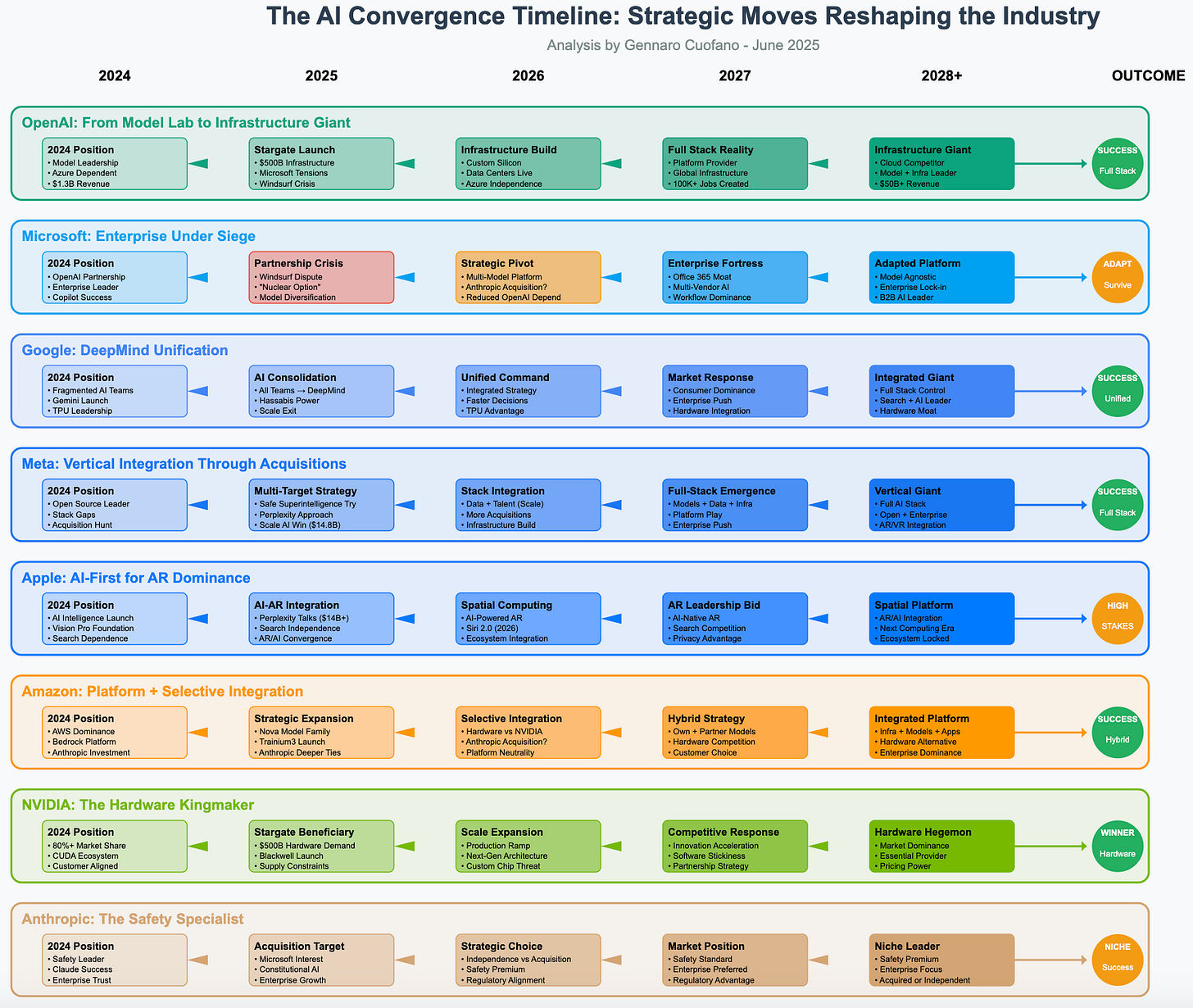This Week In AI Business: The AI Power Play [Week #26-2025]
The artificial intelligence industry has entered its most sophisticated phase yet —a period where simple strategic categories no longer capture the nuanced, multidimensional approaches being deployed by the world's most powerful technology companies.
What emerged from our analysis of the eight dominant AI players reveals not the straightforward vertical integration story often told, but rather a complex web of strategic positioning that combines elements of consolidation, platform building, ecosystem creation, and selective integration.
The reality of 2025 is that each major player has developed a unique approach to achieving AI dominance, and these strategies are far more sophisticated than the conventional wisdom suggests:
Meta isn't just building a data moat—it's systematically acquiring its way to full-stack vertical integration
Apple isn't simply pursuing search independence—it's betting that AI leadership is prerequisite to AR/spatial computing dominance
Amazon isn't maintaining pure platform neutrality—it's selectively integrating while preserving platform advantages
NVIDIA isn't content with hardware dominance—it's preparing for a post-2030 world where hardware alone isn't enough
Anthropic isn't just a safety specialist—it's building the foundational platform that powers the entire AI agent economy
These nuanced strategies reflect a deeper understanding of how AI value will be created and captured over the next decade.
Success requires not just technical excellence, but sophisticated strategic thinking about how different layers of the AI stack will interact, where network effects will emerge, and how to position for multiple potential futures simultaneously.
The weekly newsletter is in the spirit of what it means to be a Business Engineer:
We always want to ask three core questions:
What’s the shape of the underlying technology that connects the value prop to its product?
What’s the shape of the underlying business that connects the value prop to its distribution?
How does the business survive in the short term while adhering to its long-term vision through transitional business modeling and market dynamics?
These non-linear analyses aim to isolate the short-term buzz and noise, identify the signal, and ensure that the short-term and the long-term can be reconciled.





